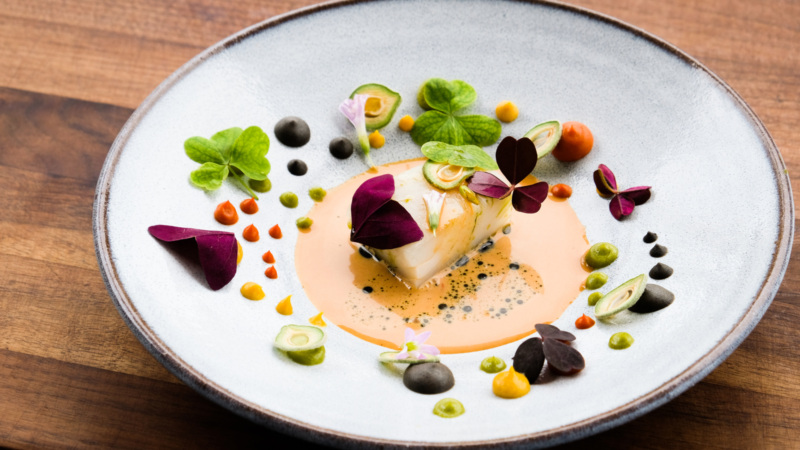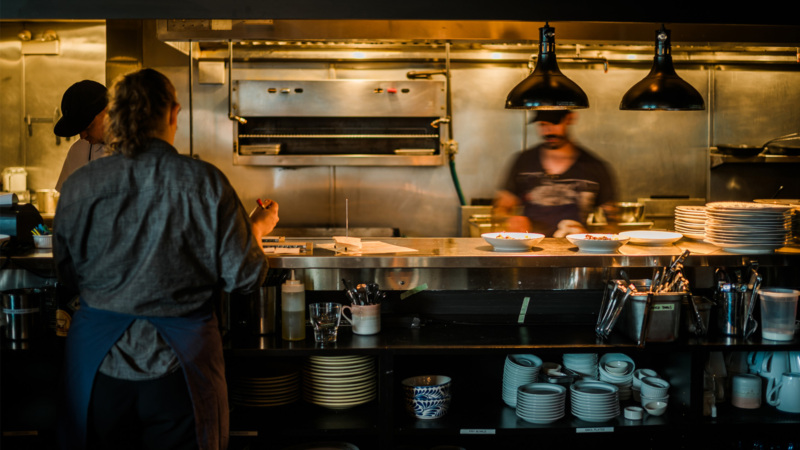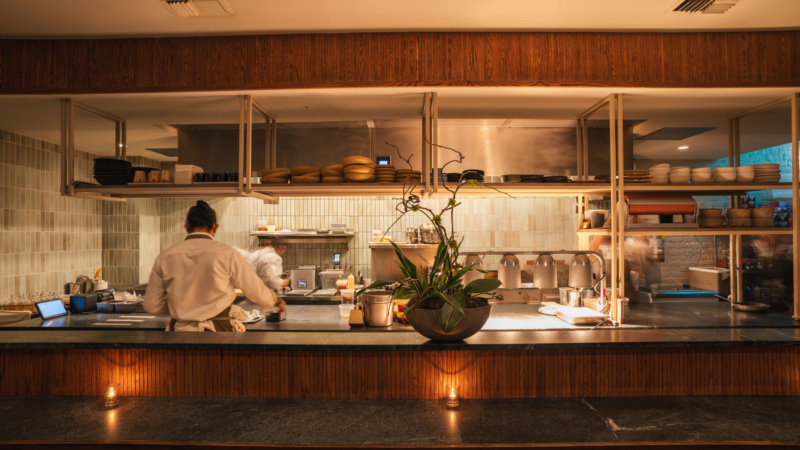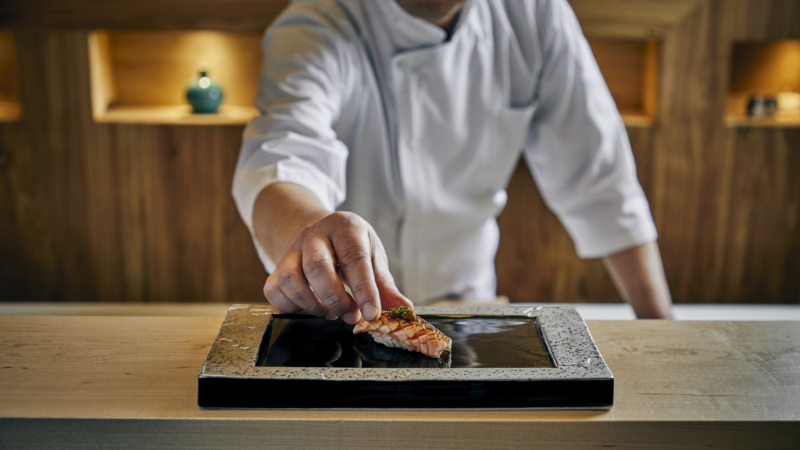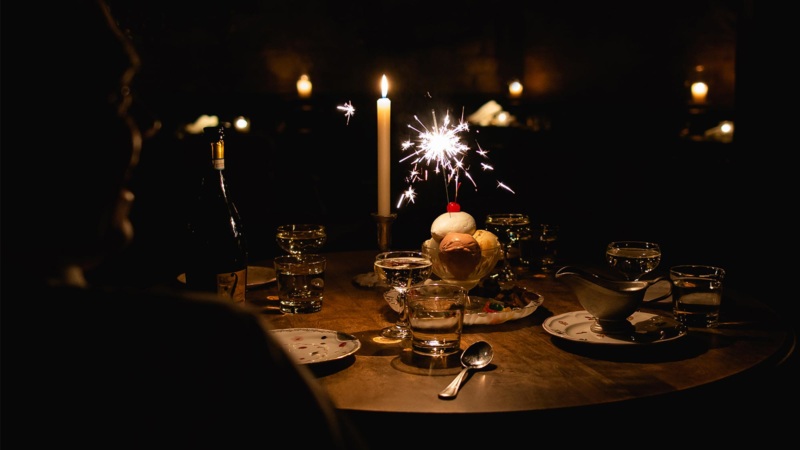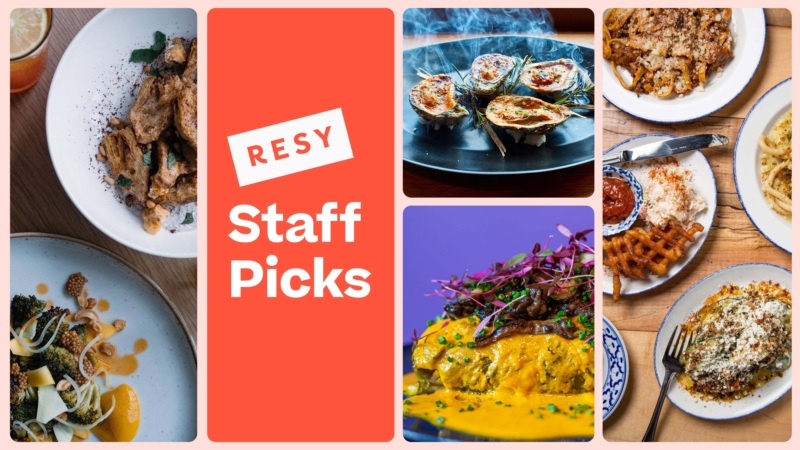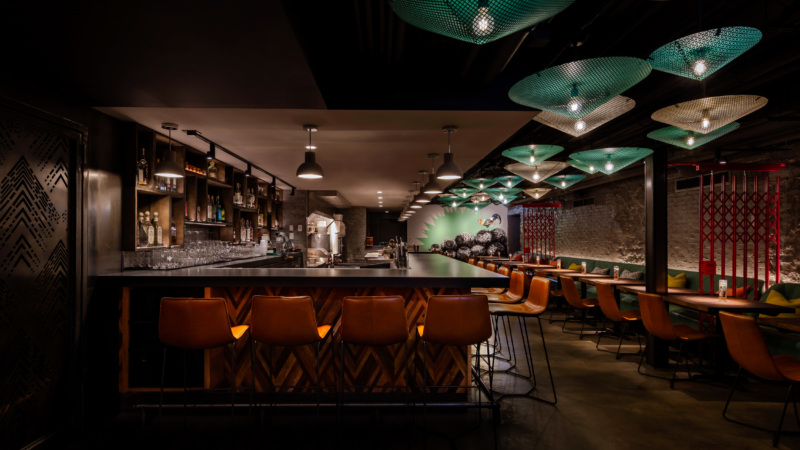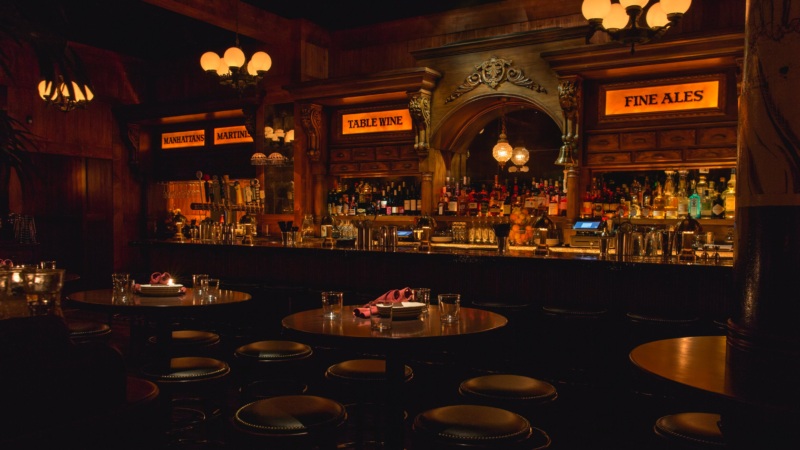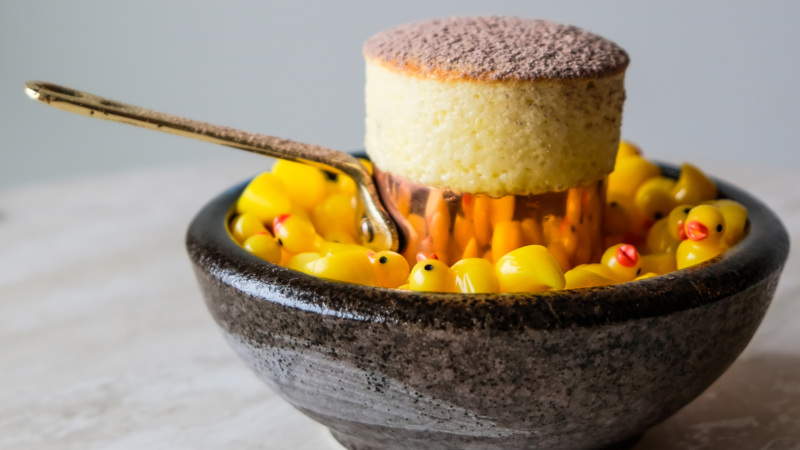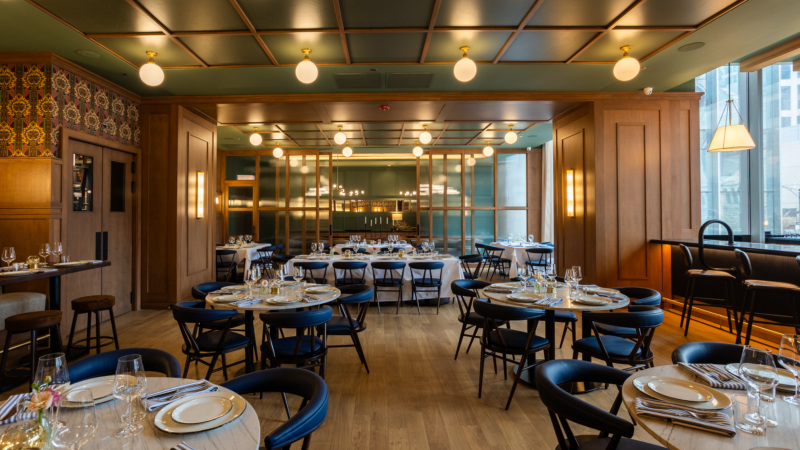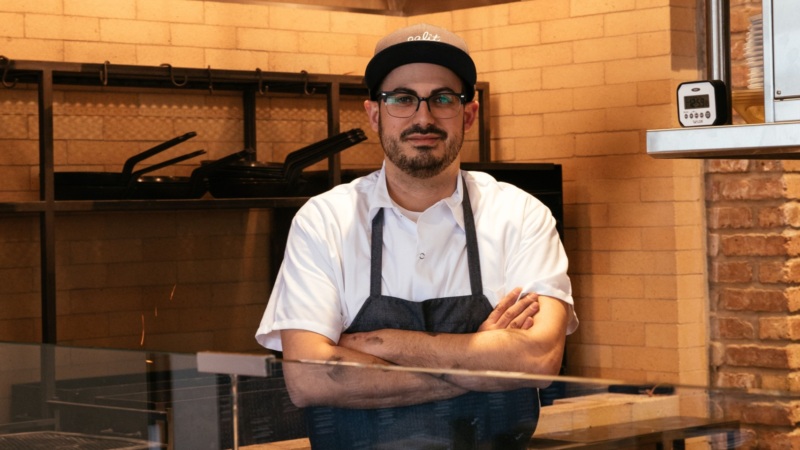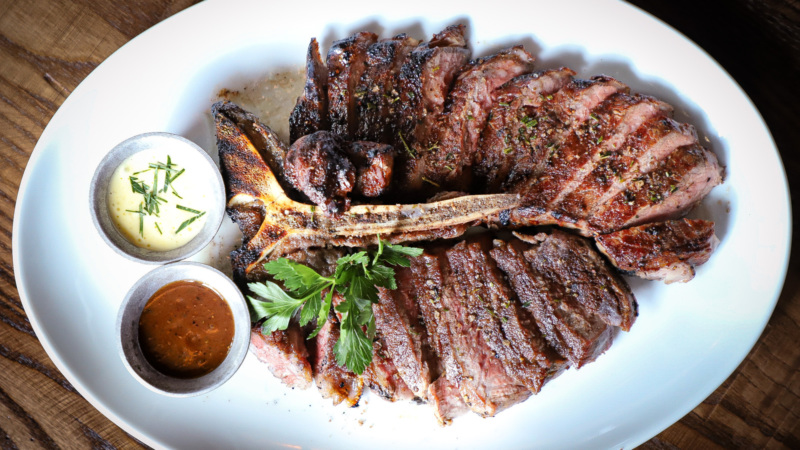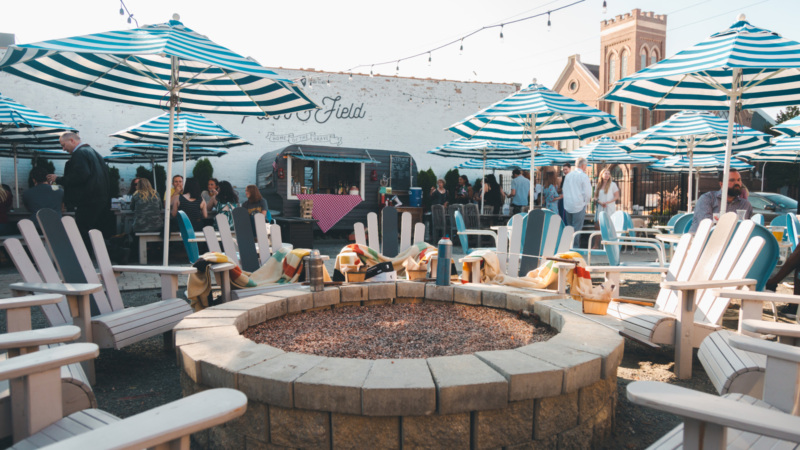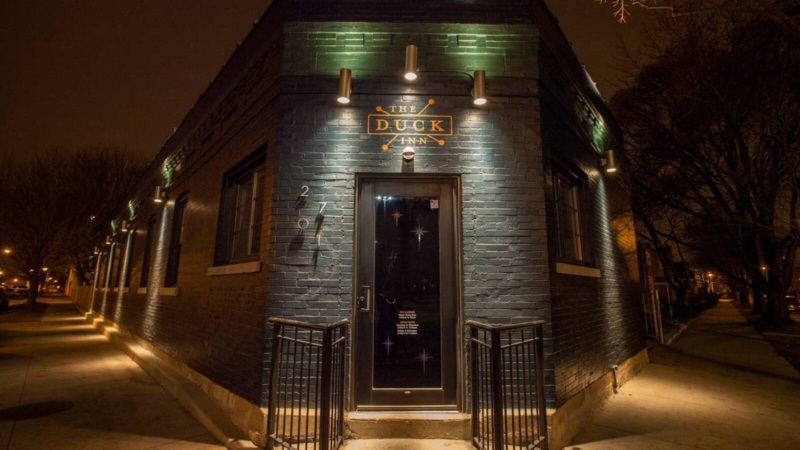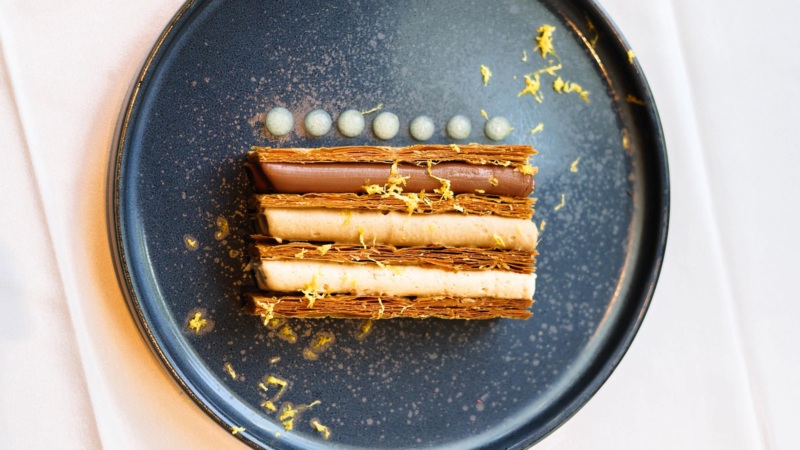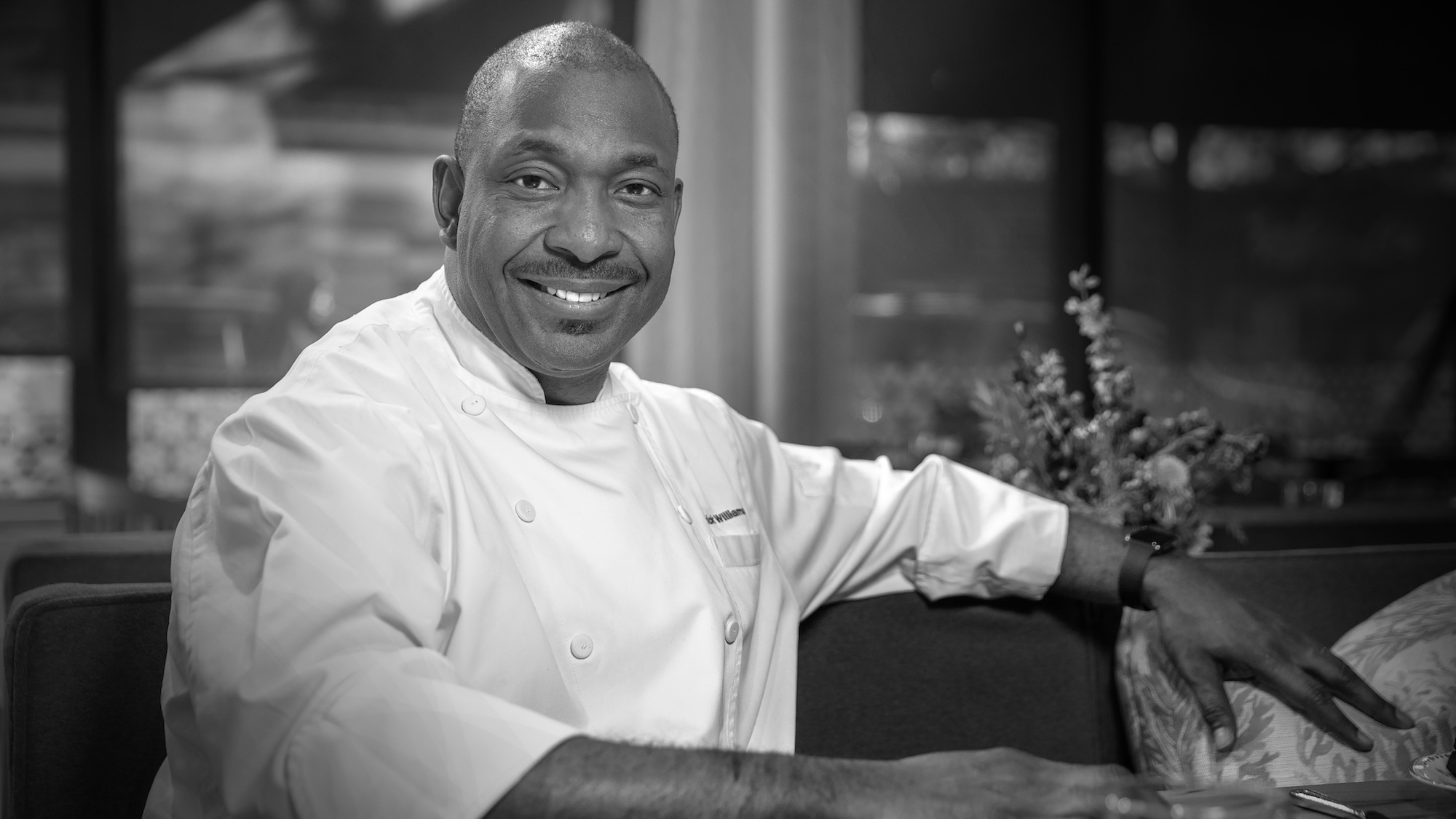
Tear Down the Restaurant Industry? Virtue’s Erick Williams Would Rather Lead By Building From Within
As COVID-19 devastated the restaurant industry, Chicago’s Virtue Restaurant & Bar pivoted like countless other cash flow-dependent small businesses — churning out to-go family meals based around its Southern-inspired cuisine, then feeding frontline hospital workers, then back to carryout and an open patio in June.
Where this story diverges from so many other restaurant survival tales: It hinges on the wellbeing of the entire workforce, in an environment that values fair treatment over profits. And it’s not an anomaly in the short life of this restaurant — nor the long career of Erick Williams, its chef and owner. Williams built his professional and personal life around conscious, long-term investment in people.
But in a time when a pandemic and nationwide racial-justice protests laid bare to entrenched cruelty in plenty of high-profile kitchens, leading with empathy seems as much like a smart business decision as a way to secure one’s space on the right side of history — a lesson Williams internalized early on.
▪️
Among chefs, this approach is less common than you might expect, though not surprising in an ultra-competitive, tight-margin world that favors the nimble — in everything from market differentiation to, more recently, hawking groceries to survive a months-long dine-in ban.
Those pressures can often squeeze them into a difficult place, deciding between what might turn a profit, and keep their staff employed, and what’s safe and healthy. We watched this play out as some major chef-owners, often painted by media as the sole auteurs of their business’s success, were praised for their scrappiness in response to COVID-19, for being pushed to the financial brink. They were given national platforms to air their concerns. Reality was sometimes more complicated. Some, like Prune’s famed owner Gabrielle Hamilton, copped publicly to avoiding efforts like staff crowdfunding campaigns “out of pride.”
The civic unrest that rocked the nation in late spring only fueled the fire, triggering public accusations of worker exploitation and racism in acclaimed restaurants. Chicago’s Fat Rice shut down indefinitely following employee-alleged verbal abuse and racism by chef-owner Abe Conlon. Similar criticisms followed in cities around the country.
“There’s a high demand in restaurants as it relates to standards, but the messaging hasn’t always been appropriate in the way that standard is conveyed, as we’ve witnessed,” Williams tells me. “People are lashing out because they’ve been offended, isolated and intimidated — it’s a very real thing. Back to that same nimble space chefs thrive in, the major adjustment now is to create a place with a value different from our bottom line.
“It’s a deeper consciousness,” he continues, “a sense of empathy.”
▪️
Williams’s philosophy didn’t begin at Virtue, which he opened in late 2018 to quick critical success—earning him a James Beard nomination this year for Best Chef: Great Lakes. It started years earlier in his almost 30-year career, as he ascended to executive chef at the bygone fine-dining stalwart MK, which chef-owner Michael Kornick opened with his wife Lisa in River North in 1999. Having himself come up through French brigade-style kitchens, Kornick recalls that MK was an intense place, which prized consistency and quality, and the guest experience. More importantly, it was predicated on assembling a team of people who set high standards for themselves, like Williams, then a line cook at Hudson Club Restaurant & Bar.
“I was always looking for people who had an aptitude for improvement towards excellence, whatever that looked like to them, and a willingness to do something that was really hard, because it was really hard in kitchens back then,” Kornick says. “Erick had an aptitude and attitude to learn; he had a desire to change his life and do something. At the time, I don’t know if he wanted to be chef-owner of a restaurant, but he was clearly interested in that doing-what-it-takes attitude.”
Ambition would come soon enough. Williams’s determination to lead swelled as he climbed to management, buoyed by the Kornicks’ investment in his professional development — and what would become a lifelong friendship. Williams cultivated a management style favoring self-motivation, and a tough skin. He willfully sought to create a divide between work and everything else.
“MK was tough on us. I am tough on my team, and the management team is tough,” Williams says. “But we work hard to create separation. A coach pushes his or her team to win. Once the game is over the push is over. It is important for all of us not to be ‘on’ all the time.”
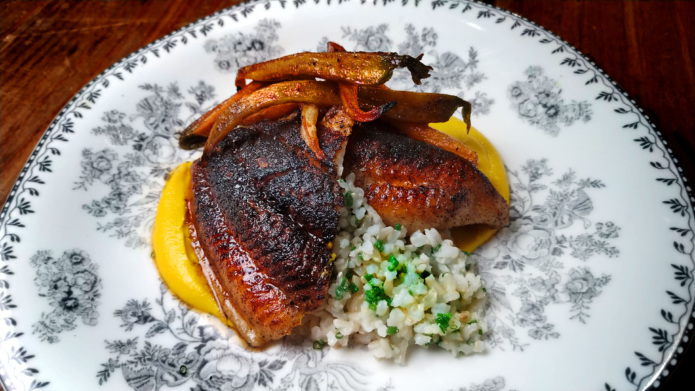
Damarr Brown, Virtue’s chef de cuisine, who started his professional career at MK ten years ago at age 19, recalled that Williams cut an intimidating figure in his chefs’ whites when Brown interviewed for an externship. But for a young Black cook, the optics were critical.
“I didn’t know the chef was Black,” Brown says. “I hadn’t seen many Black chefs other than Marcus Samuelsson on TV, and I was like, I wanna work here.”
Brown, too, found MK intense — lots of old-school cooks on the line. “But,” he adds, “it was very familial. If you were willing to work hard, there was a space for you.”
Brown was also inexperienced, and Williams demanded a lot. If the staff meal Brown made was underseasoned, he’d hear about it. But he thrived under Williams’s mentorship in an environment where there was always something to reach for.
“He pushed me to read a lot, to go eat in other restaurants, and know who the other chefs are,” says Brown.
When MK closed in 2017, Williams helped ensure job placement for everyone on his team who “wanted to stay in the industry and accept my help,” he told me last year. Brown joined Roister, the raucous New American restaurant from Alinea Group, as sous chef under then-executive chef Andrew Brochu, a friend of Williams’s. Virtue’s now-pastry chef Becky Pendola had left MK a few months earlier to join the opening pastry team at Proxi in the West Loop, helped by a connection with her other mentor, MK pastry chef Lisa Bonjour.
“I think (Williams and Bonjour) knew it was my time, and I needed to break into management on a small level; I needed a bridge,” Pendola says. “Chef’s kind of been a sleeper agent in my life and career. He’s always been there watching, around if I need anything.”
Thus an alumni network of sorts formed. Pendola and Brown regularly kept in touch with Williams by phone, or when Williams dropped by the restaurants unannounced for a drink. Any topic was fair game during those conversations — from questions about specials they were running to personal-finance woes. These relationships would form the bedrock of Virtue, which opened in 2018, and would honor the Southern cooking experience as seen throughout America’s fraught 400-year history.
▪️
There’s a reason Williams chose one of the city’s most diverse neighborhoods, Hyde Park, as the home of his first solo venture. Culturally vibrant and economically thriving, it represents an ideal for a city built on decades of systemic segregation and racism. He asked his initial managers to forgo the raises they might’ve gotten during the first year to ensure the restaurant survived — after which they were promised to earn that back, and more. Since Virtue opened, GM Jesus Garcia, Pendola and Brown all moved within a mile of the restaurant. Alongside Williams, they’ve set out to specifically develop Black talent from the surrounding neighborhoods.
That task isn’t easy; Chicago’s pool of fine-dining cooks is mostly young and mostly white. But again, optics are essential.
“We opened the door for everybody, but we tried to open the door a little wider for people that looked like us and wouldn’t get an opportunity at first glance,” Brown says. “That’s important to us, taking the extra time to be patient, train and retrain. It’s really hard to do something when you don’t see somebody that looks like you doing it.”
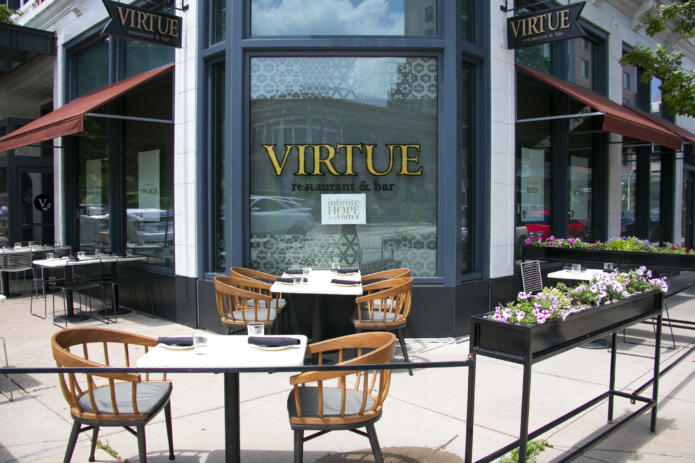
Williams positioned Virtue to take a few hits in its first year — a frigid winter or scorching summer, say — albeit not on the scale of a pandemic that would send Chicago’s unemployment to 17 percent. Following March’s statewide dine-in ban, Virtue sold weekly-changing carryout meals. He kept on half his 34 employees without reducing a single salary, and got the rest into the unemployment pipeline. He stocked the restaurant with essentials and offered forgivable loans to employees in need.
“Restaurant owners are nervous about their businesses,” says Pendola. “Restaurant workers are nervous about their families and livelihoods and how to pay rent and buy food. That wasn’t lost on Chef.”
The stress weighed heavily as the frightening reality of the virus sunk in. When Williams was approached in mid-April to provide at-cost meals to frontline workers at University of Chicago Hospital, he closed the restaurant to the public and shifted to be a commissary kitchen — always with the overarching goal of keeping staff safe.
“Yeah, we could have ramped up what we were doing,” he explains. “If my employer asks me to risk my safety so that a team member would be able to gain a level of stability in their life — whether physically, emotionally or financially — I don’t want that to feel like the greatest sacrifice of my life.”
In late May, Virtue received second-round federal Payroll Protection Program funding, enabling Williams to hire back all but 10 of his employees. As Chicago eased restaurant restrictions, the team tackled a return to limited service and patio dining — two things Williams never wanted to do.
▪️
Virtue debuted takeout and patio dining on the same day, June 10. The vibe on that first clear, warm night was quiet and appreciative. Customers wore masks and kept their distance; some sent flowers and bought shift drinks for employees. Inside, the staff cooked in the open kitchen facing a dark, empty dining room, void of the usual adrenaline rush of service.
Yet it was becoming clear, underscored by the protests, that there was further to go. Hospitality remains an industry built largely on the undervalued labor of Black and Brown workers. For Williams, the next step is for the industry to embrace a culture of humanity that mirrors its reverence for food.
He owns to having work to do. During a stressful shift — when a cook burns the third steak in a row while, in the dining room, the customer’s impatience peaks — the smarter move might be to send the employee home, rather than give into the stress, and yell.
“It’s a tough position to take when you’re understaffed, but it’s better than pushing somebody to the brink of hurting themselves, or making them feel like there’s no value,” he says.
So while an industry scrambles to backfill empathy while staying financially viable, Williams has been building on his already deep-rooted model of human investment, laying the groundwork for its evolution outside Virtue’s four walls. It begins to take shape the moment I ask Brown to forecast a time beyond the grips of COVID.
“Hopefully we can establish more concepts, build a little Restaurant Row of our own,” he says. “And when I’m ready to open a concept of my own, I know Chef will support me through that.”
That might explain why Williams considered the protests a reaffirmation that the burden of fighting for equity and justice can’t fall on victims alone. It is a task for those who’ve long, if unknowingly, benefited. Much the same when I ask him about an ascendant argument for letting the industry as we know it die — forcefully raised by chef and activist Tunde Wey to expose a rigged system that Wey says can’t be changed from within — Williams replies that he has no choice but to believe it can.
“You’re talking to a guy with a restaurant called Virtue, who believes in random acts of kindness,” he says. “For me to think it couldn’t be repaired is for me to think that the country my ancestors fought for, died for, and were servants in, would have no space for justice.”

